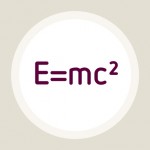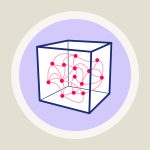Dictionary
causal
In the context of relativity: causality concerns the question of which events cause which other events (Latin causa, the reason, the cause) or, more generally, can influence them. In special relativity, nothing, no moving object, no information, no influence can move faster than light. Thus, in principle, an event can only influence another event if the hypothetical influence (such as a signal or a force) would not have to be transmitted faster than light. In other words, light propagation determines the causal structure of spacetime (cf. light-cone). Models and theories that take this structure into account are called causal – for example the relativistic quantum field theories.
In general relativity, the cosmic speed limit, the speed of light is only defined locally: In a side-by-side race, no object, no influence can overtake a light signal. Also from this a causal structure can be derived and determines which events can influence which other events. As gravity deflects and delays light signals, the matter is more complicated in general relativity than in special relativity. Although this makes the analysis somewhat more complicated, the following still applies: the propagation of light determines the causal structure.









